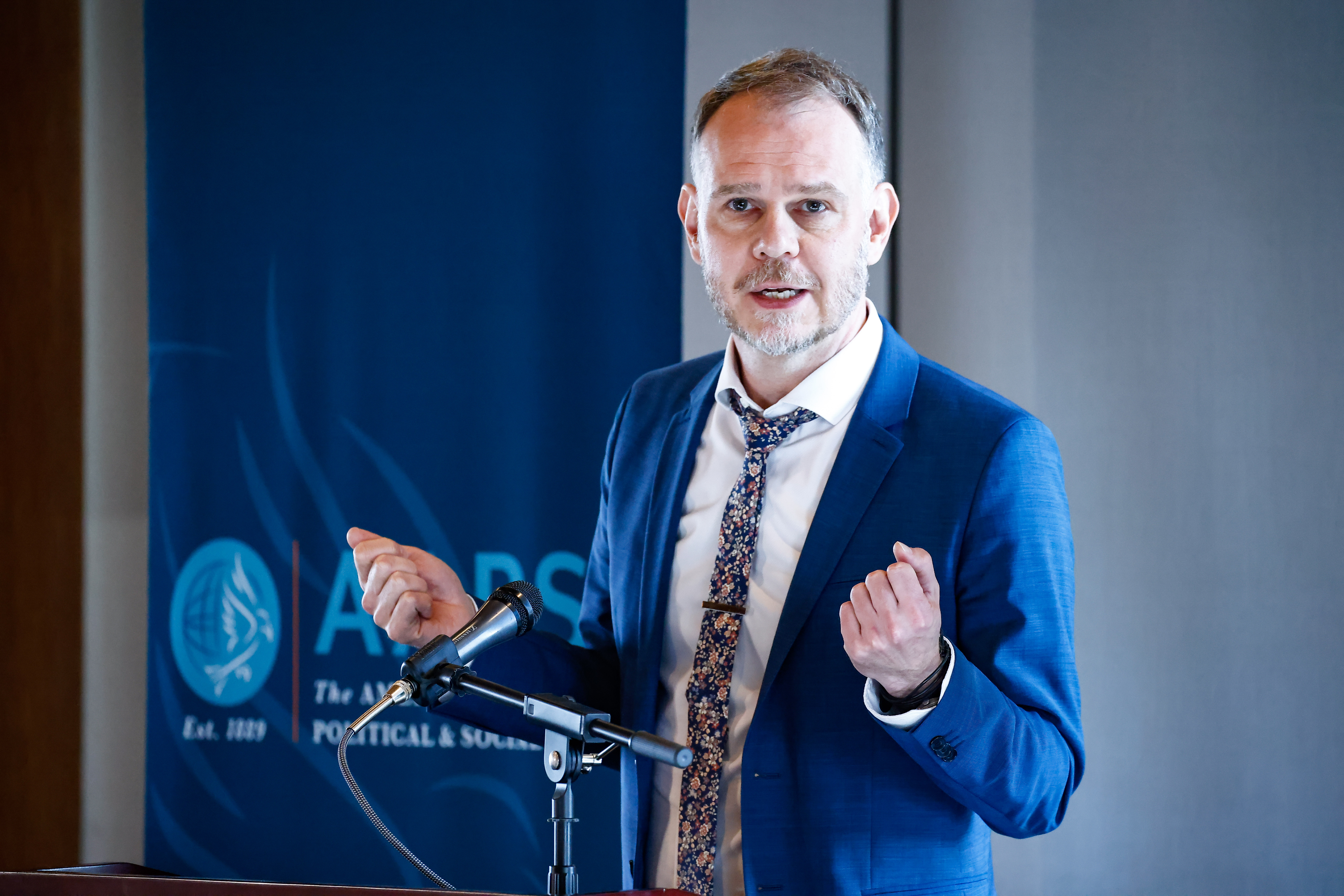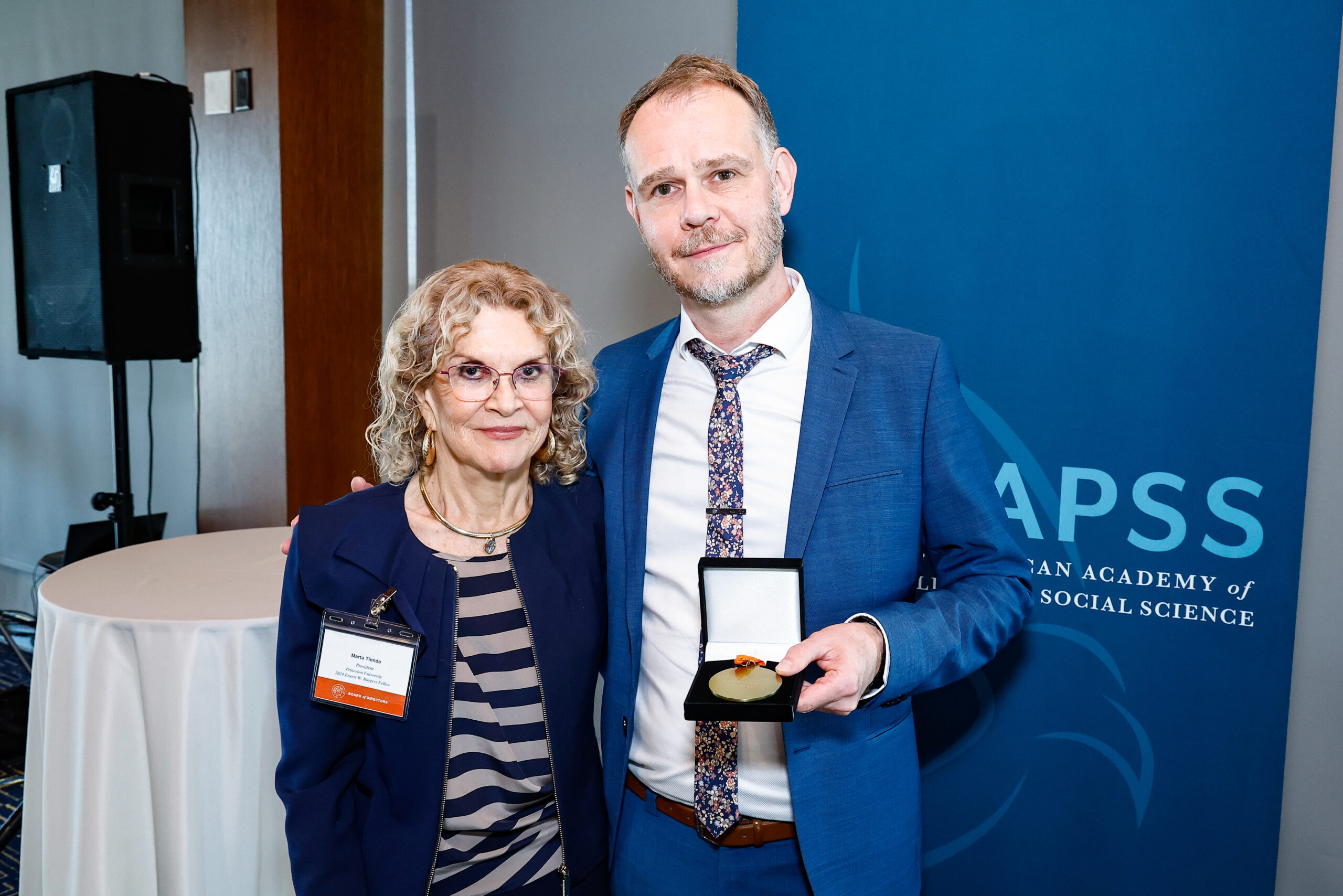Dietram A. Scheufele, our 2024 Harold Lasswell Fellow, adds to our series of special Fellows’ Corner essays on the “State of the Nation.” This series expands on our 2024 fellows’ induction remarks in response to the following prompt: “Professionally, how would you respond to claims that the American experiment is in decline?”
If you are an AAPSS Fellow and would like to contribute to the Fellows’ Corner in future editions of the Dispatch, please contact Jessica Erfer.
The Dimming Lights of a Shining City?
When visiting different parts of Europe for talks or lectures in the past few years, I regularly warned about the erosive amalgam here in the U.S. of an increasingly polarized electorate and an information ecosystem that maximizes profits by sorting users into ideologically homogeneous biospheres with little room for meaningful public debate. For the longest time, the pushback from fellow European academics was predictably uniform: “We don’t have the same problems here that you have in America.” Not anymore. Recent elections in the Netherlands, France, Germany, and many other seemingly stable Western democracies witnessed a resurgence of extremist political movements and a rapid normalization of fringe views in political discourse, much of it online.

Growing up in Germany, I have spent most of my formative political life looking at American democracy from the outside in until I became a citizen a few years back. For me, like many other immigrants to this country, the enormous appeal of the American experiment continues to be its uncompromising, naïve ambition. John Winthrop’s metaphor of the shining city on a hill has long defined America’s self-image, “teeming with people of all kinds living in harmony and peace,” as Ronald Reagan said in his presidential farewell address in 1989. “And if there had to be city walls, the walls had doors and the doors were open to anyone with the will and the heart to get here.”
America’s persistent hope for a more just and free world order has also long provided a North Star for other democracies all over the world. My parents still remember stories of American GIs liberating West Germany and establishing a democratic system that proved more resilient than any alternative offered on the other side of the Iron Curtain. For more than 75 years, and probably much longer, America’s blueprint for democracy was its most successful export.
Today, that blueprint is increasingly difficult to export, for a number of reasons. Let me briefly touch on two. First, it is unclear that America as a society continues to believe in its own democratic potential, let alone its exceptionalism. Exporting the ideas of democratic decision-making, constructive disagreement, and reasoned compromise is difficult for a country whose citizens themselves seem to have lost the ability to disagree with each other in a productive fashion. Americans are so deeply entrenched within our respective ideological echo chambers that we seem to have stopped working together across lines of difference.
Coincidentally, much of my early work as a PhD student and later as an assistant professor dealt with the beneficial effects of citizens regularly interacting with others we fundamentally disagree with, and whose views and values are different from our own. At Cornell, we showed across a number of studies that exposure to viewpoints and ways of life that are different from our own makes us feel more efficacious about the change we can make in society, incentivizes us to be more informed, and ultimately increases our involvement in political life. In other words, disagreement is good. It’s a fundamental prerequisite of functioning liberal democracies.
But today, a lot of that disagreement happens in isolated information biospheres that allow us to surround ourselves with people who think just like ourselves and very often hold the same beliefs—some true, many not. Since then, my work with Dominique Brossard and other colleagues at the University of Madison–Wisconsin has also shown that we, as citizens, have an increasingly hard time disagreeing with each other in a civil fashion. We called this the “nasty effect”—the idea that uncivil disagreement online not only erodes our ability to listen but actually ends up undermining our confidence in journalistic institutions like The New York Times as neutral arbiters of truth.
All of this relates to a second reason for the immense reputational damage that the American experiment has recently suffered in the eyes of the rest of the world. When rioters tore down the American flag on the Capitol Building to replace it with a Trump flag on January 6, 2021, the American experiment lost its veneer of infallibility. It shifted from being an aspirational North Star to being just one of many democracies struggling with internal tensions and a changing geopolitical landscape. As a result, emulating the American experiment, regardless of its past successes, has become an increasingly difficult value proposition for political leaders in other parts of the world.
All of this comes at a time when democratic North Stars are needed more than ever. My home country, Germany, for instance, continues to work through a constitutional crisis after an early parliamentary election in March 2025 that saw more than a third of voters cast their ballot for either the ultraconservative Alternative for Germany (AfD) party or various left-leaning parties that originated from the former ruling party of East Germany’s totalitarian regime. Deeply fragmented societies, eroding democratic structures, and global instabilities make the world of 2025 look a lot more like the Weimar Republic than the aspirational, exciting moment that my parents felt when America freed their country after World War II. “After 200 years, … [America’s] glow has held steady no matter what storm,” Ronald Reagan proclaimed a few months before the fall of the Berlin Wall, “[a]nd she’s still a beacon.” If the American experiment is indeed still a guiding light for the rest of the world, that light is dimming quickly.
—Dietram A. Scheufele, 2024 Harold Lasswell Fellow


